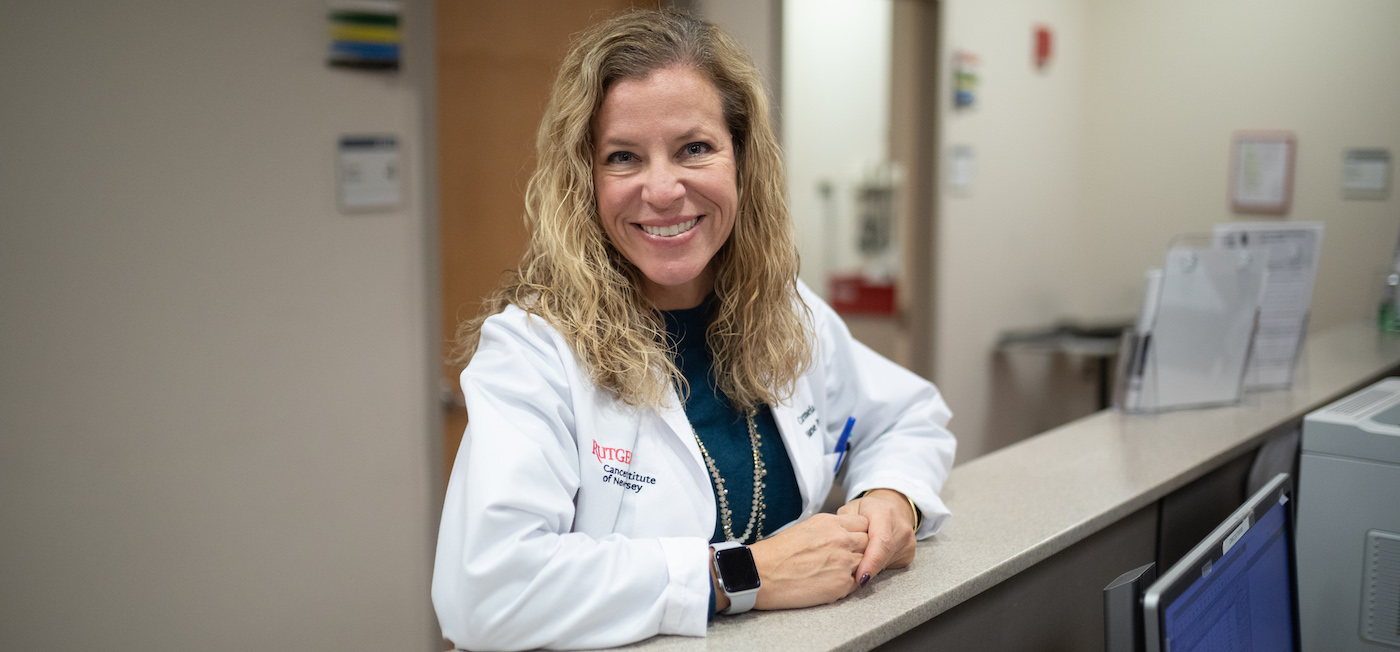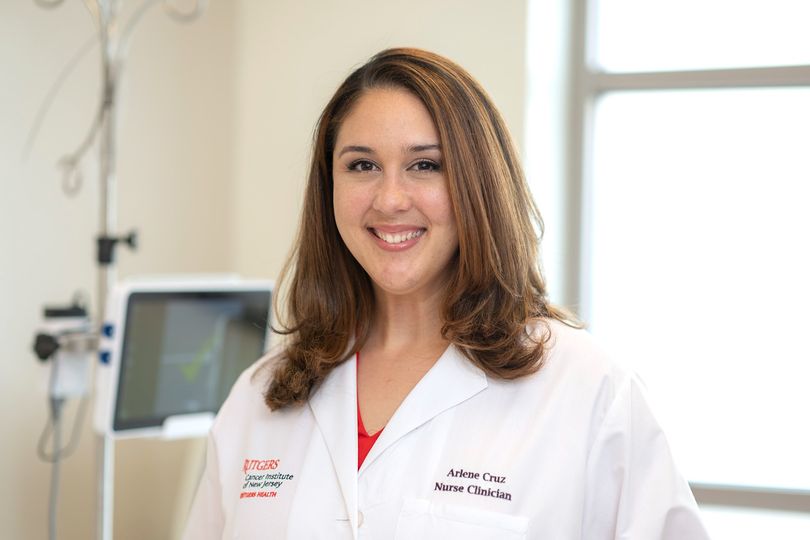
Oncology nursing is a unique specialty that requires specific knowledge of the biological and psychosocial dimensions of cancer and its effects on individuals and families. At Rutgers Cancer Institute nurses serve as critical members of the multidisciplinary healthcare teams providing exceptional care to our patients. They serve in direct patient care, clinical research, patient education, nursing education, and advanced practice roles.
The practice of nursing at Rutgers Cancer Institute emanates from the most current evidence and standards of oncology nursing practice. These standards are based on core values that include a scientific basis for practice, knowledgeable caring, integrity, innovation and creativity, professionalism and leadership.
As an academic medical center and an NCI-designated Comprehensive Cancer Center, our nurses are provided with an opportunity to participate in local, national and international meetings throughout the year. They are regular presenters at the Oncology Nursing Society Annual Congress and share their knowledge and best practices with colleagues around the globe.
There are several types of nurses at Rutgers Cancer Institute. These include oncology treatment nurses, advanced practice nurses, research nurse clinicians, oncology nurse navigators, and oncology education specialists.
Nursing Education
Evolving needs and changing trends in the clinical and research arenas create a dynamic environment where continuing nursing education and training are essential to ensure the ongoing competency of nurses. At Rutgers Cancer Institute, oncology nursing education specialists have developed an easily accessible education and training resource to support the development, maintenance and enhancement of competent, patient centered, evidence-based practice and its translation to exemplary patient care. Read more here
Nursing Jobs
 “Empathy is the most important skill to cultivate as an oncology nurse,” says nurse clinician Arlene Cruz, emphasizing how resilience is so essential to nursing practice. “In oncology nursing, as in all areas of nursing, practicing self-care and prioritizing mental health is key. You need fortitude of mind and body to give gentle care to patients.”
“Empathy is the most important skill to cultivate as an oncology nurse,” says nurse clinician Arlene Cruz, emphasizing how resilience is so essential to nursing practice. “In oncology nursing, as in all areas of nursing, practicing self-care and prioritizing mental health is key. You need fortitude of mind and body to give gentle care to patients.”
During the height of the COVID-19 pandemic, the nurses at Rutgers Cancer Institute created safe spaces to help process grief, frustrations, and anxieties without judgement.
“We still have these safe spaces to help support each other,” Arlene says. “I take pride in being part of the caring clinical team at Rutgers Cancer Institute and have been inspired to continue my education to become a nurse practitioner.”
What do you want out of a career? For Oncology Nurse John Rodriguez, oncology nursing has it all: a combination of science and caring that creates the perfect blend for a rewarding and challenging nursing career.
Rutgers Cancer Institute offers a wide variety of opportunities for nurses. Read more about the different positions below.
Advanced Practice Nurse
The Advanced Practice Nurse participates in a collegial relationship with the physicians, nurses and other health care professionals. This position performs in an expanded nursing role by providing primary care to patients, which includes taking histories, making assessments, ordering lab tests, reviewing and reporting diagnostic lab values.
Staff Nurse
In accordance with professional nursing standards, the Staff Nurse skillfully administers total patient care based on the individualized needs of assigned patients and families.
Nurse Clinician (Treatment)
The primary purpose of the Nurse Clinician (Treatment) position is to provide direct care to a specified group of patients in the ambulatory setting. The Nurse Clinician works collaboratively with all members of the health care team to ensure patients receive efficient, safe and high quality care. The scope of the position is defined by the Nurse Practice Act of the State of New Jersey and the standard Operating Procedures set forth by Rutgers Cancer Institute.
Nurse Clinician (Clinic)
The Nurse Clinician (Clinic) provides clinical coordination and ensures continuity of care to a specified group of patients in the ambulatory setting. In collaboration with other members of the Unit, is responsible for ensuring that high quality, comprehensive services are delivered to patients. The scope of the position is defined by the Nurse Practice Act of the State of New Jersey, and the Standard Operating Procedures set forth by Rutgers Cancer Institute.
Research Nurses
The primary purpose of the Research Nurse Clinician (RNC) is to ensure successful, patient-oriented, safe and effective conduct of clinical trials at Rutgers Cancer Institute. The Research Nurse Clinician assists investigators to prepare and implement new clinical trials, screens and enrolls study participants, and provides protocol-related clinical management to those participants while on study. Serves as a resource to other Cancer Institute faculty and staff on available protocols, and general research topics such as FDA, IRB and GCP regulations.
Nurse Navigators
A nurse navigator is a health care professional whose clinical expertise and training guides patients and their caregivers to make informed decisions, collaborates with a multidisciplinary team to allow for timely cancer diagnosis, and treatment, and provides increased supportive care throughout their cancer journey.
Radiation Oncology Clinical Coordinators
A radiation oncology clinical coordinator participates in all assigned patient care activities with the attending physician and coordinates the delivery of care. They assist in communications with patients, triaging patients and patient issues, symptom management, and teaching patients regarding their disease, process and treatment, and are responsible for evaluating, planning and delivering nursing care to meet individualized patient needs. They also collaborate with the care team, utilizing clinical outcome data to support the innovative and cost-effective changes to practice and the service line, and improving patient flow by reducing the time the patient waits in clinic.

